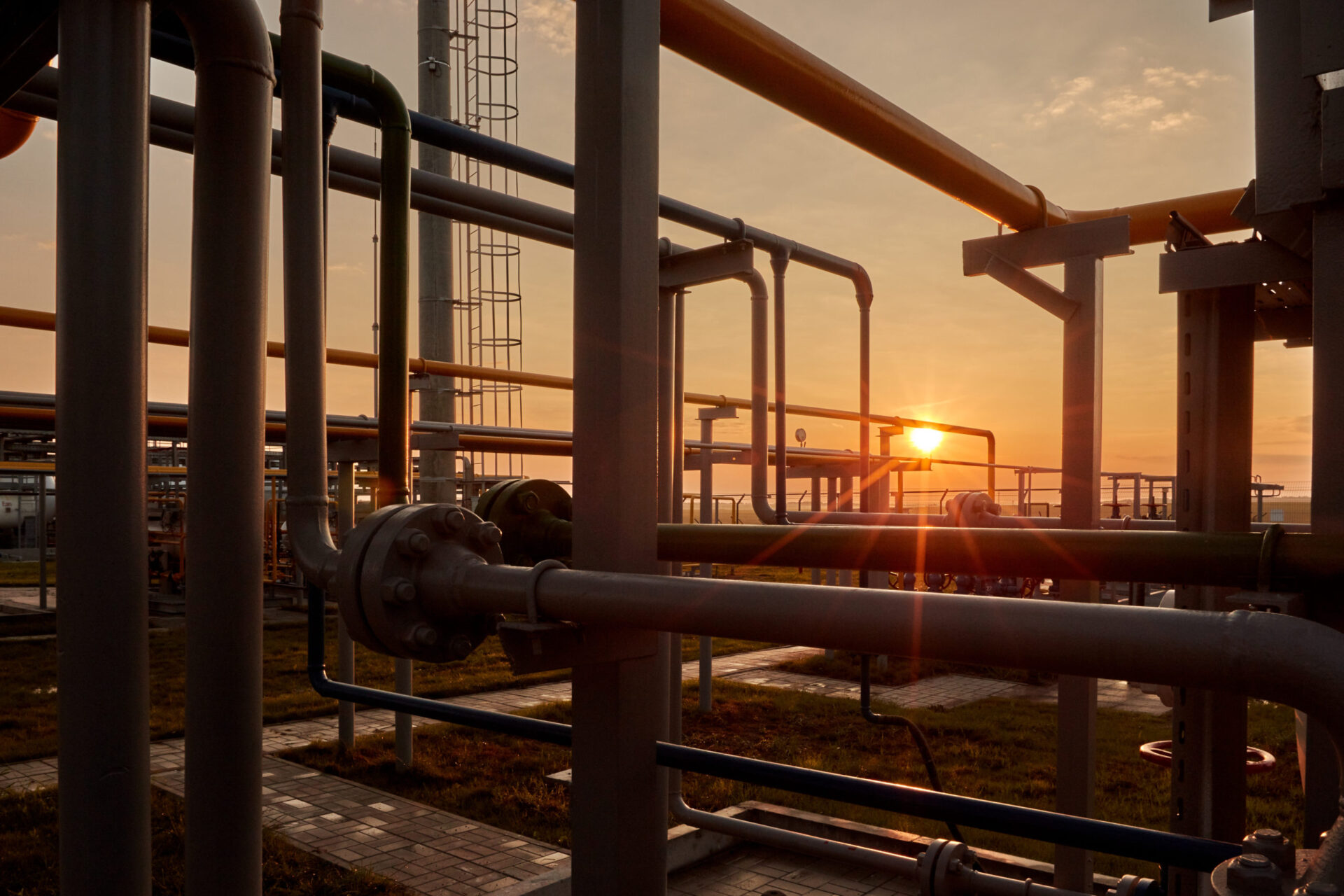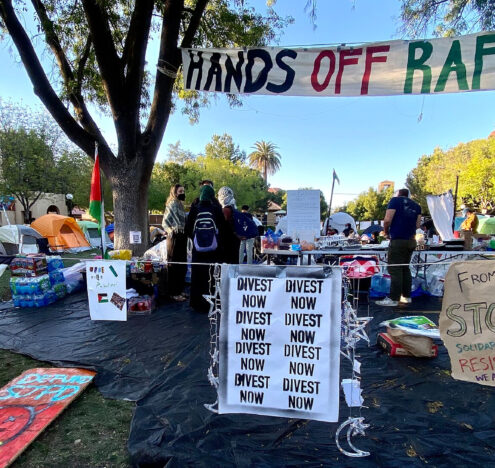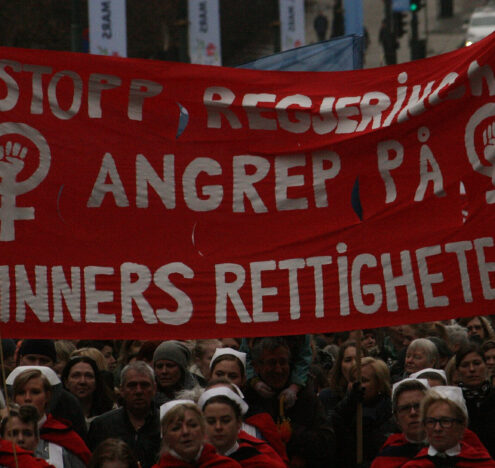“Adults in a Room” is a series in collaboration with The Stimson Center’s Reimagining US Grand Strategy program. The series stems from the group’s monthly networking events that call on analysts to gather virtually and hash out a salient topic. This series aims to give you a peek into their Zoom room and a deep understanding of the issue at hand in less than the time it takes to sip your morning coffee without the jargon, acronyms, and stuffiness that often come with expertise.
One of the consequences of Russia’s war against Ukraine has been a disruption to global energy flows. Energy prices in Europe and elsewhere have skyrocketed, and there have been concerns that gas shortages could lead to significant loss of life this winter.
There are also longer-term consequences to the changes that are happening to global energy flows. The demonstrated reliance on gas from Russia has revealed how energy security can be improved by countries transitioning to renewable sources. At the same time, the willingness to reopen coal power plants and increase gas production outside of Russia demonstrates that energy security remains a priority compared with the implementation of a green energy transition.
The Reimagining US Grand Strategy program’s October 2022 roundtable brought experts together to discuss the consequences of the energy crisis in Europe and what it might mean for energy security going forward. The conversation focused on the salience of energy concerns within geopolitics and how Europe might be changed by events this winter. Three experts expanded on the present and future role of energy in global politics below.
Gregory Brew, Postdoctoral Fellow, Yale University
This year’s chaotic events, from the war in Ukraine to the oil price shock, natural gas disruptions, climate change, and roiling global inflation, have proven the salience of energy as a key component in geopolitics and global economics.
Locked within energy security’s return to relevance are elements of change but also of continuity. While dramatic upheavals have rocked the energy ecosystem, global developments have reaffirmed existing truths in many cases. Helen Thompson, in her recent book “Disorder,” argues that 20 years of geopolitical upheaval culminating in the COVID pandemic have now given way to the “politics of climate change.” Yet, global efforts to decarbonize “will not remove these conditions, merely reshape them and turn them in new directions.”
While the world must decarbonize to avoid calamity, 2022 revealed an inconvenient truth: oil and gas (and coal) still power the global economy and remain crucial elements in global geopolitics.
There are several factors that have changed. The first is how Europe views its reliance on Russian energy. As his troops surrounded Ukraine for the “special military operation,” President Vladimir Putin steadily reduced the flow of natural gas to Europe. Putin no doubt assumed that Russia’s status as Europe’s major supplier of energy would give him considerable leverage over the European Union. The assumption proved a colossal mistake, as European states have now spent months slowly weening themselves off Russian supply, turning to alternative sources of energy.
The second is the United States emergence as a major liquified natural gas supplier to Europe. This increased demand for US liquified natural gas marks the return of the US as a major energy exporter to Europe. And the third change is the urgent need to address climate change by reducing carbon emissions. Since the Paris Agreement of 2015, developed and developing economies have stepped up efforts to reduce carbon emissions, improve energy efficiency, increase investment in clean energy, and cut their need for fossil fuels. Russia’s invasion of Ukraine and the subsequent instability in global energy markets has encouraged the idea of “greening for security,” or increasing reliance on clean energy as a way to divest from tumultuous oil and gas markets.
There are, however, some areas of continuity. First, Putin has maintained Russia’s status as a major energy exporter despite its invasion of Ukraine. Through close ties to the Organization of Petroleum Exporting Countries, especially its leader Saudi Arabia, and by leveraging markets in India and China, where Russian oil is sold at a steep discount, Russia has kept its energy exports from falling to nothing. Second, the domestic energy challenge in the United States continues to loom large. Even as the US exports huge quantities of natural gas, oil, and refined products, President Joe Biden has contended with the age-old domestic political problem of high gasoline prices. The lack of clear policy tools — unlike Saudi Arabia or Russia, the United States has no national oil companies or central energy ministry — means Biden has had to turn to decades-old implements like the Strategic Petroleum Reserve, a store of crude oil kept in the United States that is meant to be used in the event of an energy emergency, to influence the market. While releases from the Strategic Petroleum Reserve have worked to lower gas prices, they offer a finite solution to the persistent problem of inflation and pain at the pump.
While the world must decarbonize to avoid calamity, 2022 revealed an inconvenient truth: oil and gas (and coal) still power the global economy and remain crucial elements in global geopolitics. Even with rapid decarbonization, the world will need millions of barrels of oil in the decades to come. For an industry rocked by frequent price shocks and an atmosphere of investment uncertainty, to say nothing of geopolitical shocks like Russia’s war in Ukraine or US sanctions regimes in Iran or Venezuela, it is unclear where this oil will come from or who will be responsible for supplying it. New tensions between the United States and Saudi Arabia suggest old relationships bound by pacts of “oil for security” is no longer credible in a world of rising temperatures.
The challenge for states moving forward is two-fold: how to maintain adequate supplies of fossil fuels at stable prices while simultaneously cutting their use and carbon emissions in order to avoid a greater increase in global temperature.
Emma Ashford, Senior Fellow, Stimson Center
European countries are enjoying an unusually warm winter, with some setting record-high temperatures for October and November. Normally, such a statement would be regarded poorly as a sign of encroaching climate change. Instead, it is a welcome development for a continent dealing with the energy fallout of the Russian war in Ukraine and the European Union’s attempts to wean itself off Russian oil and gas.
Indeed, even with record-high temperatures, Europe is suffering economic malaise at the hands of soaring energy prices. Industrial demand for gas in Europe is down by 25% overall, and in the most energy-intensive industries — things like aluminum or fertilizers — companies are shutting down factories and abandoning production, with no guarantee that they’ll reopen. In some ways, this is about the best that could have been hoped for this winter. After all, European consumers are not shivering in their homes from the insufficient supply. But at the same time, it would be wrong to claim that Europe is surviving the energy crisis unscathed.
All of this is a reminder of the costs of overreliance on too few suppliers. European states’ mistake was not that they bought Russian gas but that they put all their eggs in one basket. Being so overwhelmingly dependent on Russia as a gas supplier has meant that the sudden decision to transition to other suppliers as a result of the war in Ukraine has carried huge costs. A more diversified, resilient approach to energy security could have kept these costs far lower. It’s a lesson that Europe — and the United States — should remember going forward; whether in energy, manufacturing supply chains, or even security, one should never be too reliant on any single supplier.
Anand Toprani, Associate Professor of Strategy and Policy, US Naval War College*
Discussion of energy geopolitics defies lazy analysis through recourse to the popular “market mechanisms” argument. In the context of Europe’s current issues with Russia, it is fair to say that the Russians have made a number of long-term blunders, not the least of which is calling into question Europe’s reliability as a consumer of overland Russian energy.
Russia and its energy allies indicate that they can profit from high energy costs without incurring substantial political costs.
Calculations about European security and resolve to contest Russian aggression must include consideration of domestic and economic factors that are reshaping the world. In the United States, Americans tend to view their economic prospects through the lens of gas prices, which is an imperfect yet ubiquitous indicator of the health of the national economy. European gas (“petrol”) prices may not fluctuate to the same degree due to Europeans’ decisions to impose much higher taxes on gasoline, but they are confronted by the economic iceberg of high marginal costs for natural gas as winter approaches.
In Europe, as in the United States, higher energy prices are among the major factors driving inflation despite the pleas of economists to focus on core inflation measures. This inflation, in turn, is fast becoming the dominant news story around the world. Even countries not directly affected by the Ukraine war or even energy shortages must grapple with the consequences of the US Federal Reserve’s policy of fighting inflation by raising interest rates, which have stimulated demand for dollar assets and raised real borrowing costs for foreign nations dependent on dollar-denominated trade and debt.
Russia and its energy allies indicate that they can profit from high energy costs without incurring substantial political costs. Meanwhile, Europe’s ability to hold together as a unified political bloc will be jeopardized if voters punish governments they feel are taking actions that contribute to domestic inflation. Despite winning re-election, Emmanuel Macron is the first French president in 20 years whose party does not have a legislative majority in Parliament. Germany’s feeble “traffic light” coalition could collapse any day, while Britain’s incompetent Conservative government can only hang on for another two years at most. Not everyone in Italy, it seems, is willing to ”turn the heat off and wear two ski suits” this winter to ensure that Ukraine can keep fighting.
The more European resolve fractures, the more likely we are to have a gigantic frozen conflict in Ukraine that will grind on endlessly because neither side has the wherewithal to end the war on favorable terms. This may not be the outcome Russia expected when it started the war, but considering its military ineptitude, it may afford Russia the chance to escape the worst consequences of its failure.
*The views presented do not reflect official positions of the Naval War College, the Department of the Navy or the Department of Defense.





















